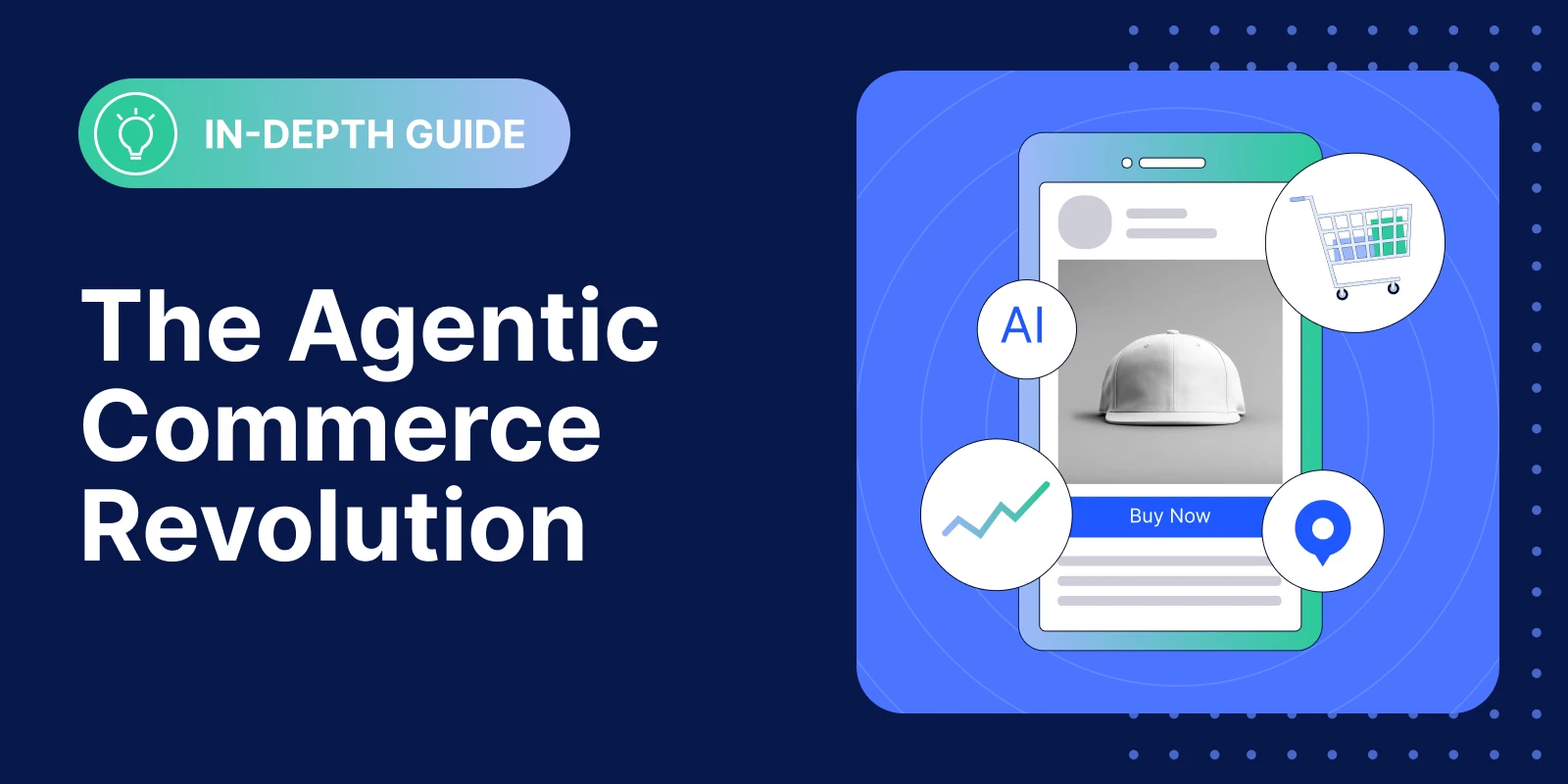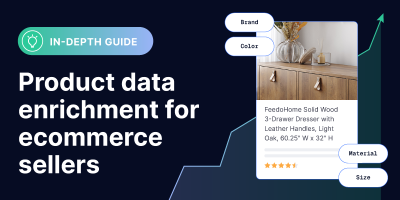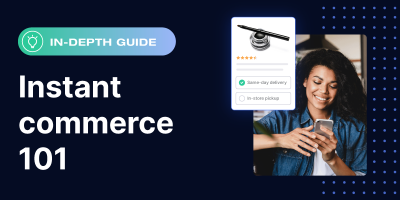The tidal wave is here: a seismic shift in product discovery
The way consumers discover and purchase products online is undergoing a dramatic transformation. Traditional organic search is rapidly losing ground as the “front door” of the internet. Instead, consumers are turning to answer engines—AI-powered platforms like ChatGPT, Perplexity, and Gemini—to find what they need. Nearly 60% of consumers are already shifting their search behavior away from Google to these new platforms, a change that’s accelerating monthly.
For large retail brands and technology companies, this means that 20-30% of web traffic is already evaporating as the old playbook of SEO and paid ads becomes less effective. The conversation is no longer about replatforming or incremental improvements—it’s about regaining lost visibility and relevance in a fundamentally new digital landscape.
This perspective was the focus of a recent panel at the 2025 CommerceNext Growth Show, “From B2C to A2A: How Agentic Shopping Makes Catalog Quality More Important Than Ever.” Moderated by Sharon Gee, SVP of Product, AI at BigCommerce, the session featured Taz Patel, Head of Advertising and Shopping at Perplexity, Owen Spencer, Director of Enterprise Applications at Revelyst, and Amera Khalil, Director of Sales at Feedonomics. Together, they discussed the shift from product-first to shopper-first strategies, how enriched and unstructured data fuels next-gen discovery experiences, and what brands need to do now to stay visible as AI agents reshape the future of commerce.
Why this matters: the rise of agentic search and checkout
In this new era, AI agents act on behalf of shoppers, searching, comparing, and even checking out across multiple channels—often without ever visiting a merchant’s website. These AI-driven experiences are seamless, contextual, and increasingly the default for how consumers interact with commerce online.
- The game has changed: Previously, merchants focused on acquiring customers, tracking behavior, and optimizing conversion rates on their own sites. Now, the challenge is to get your product data into the channels where discovery and now checkout are increasingly happening.
- Data is the new storefront: Visibility depends not just on having a beautiful website, but on how well your product data—structured and unstructured—is surfaced to answer engines and AI agents.
The opportunity: why only a few can win
AI platforms don’t want to be merchants of record or handle the complexities of payment, tax, fraud, or shipping. They need trusted, high-quality data from enterprise merchants. Only a handful of companies—BigCommerce and Feedonomics among them—are positioned to deliver this at enterprise scale, especially for B2B.
- Enterprise advantage: BigCommerce & Feedonomics are already integrated with 30% of the Internet Retailer 1000, giving us a unique ability to surface real-time data from ERPs, ecommerce platforms, and PIMs directly to answer engines.
- Trusted partnerships: Leading platforms like Google, Microsoft and Perplexity are prioritizing direct partnerships with data providers who can deliver clean, enriched data at scale.
What merchants must do now
1. Externalize and enrich your data
- Structured data: Titles, descriptions, images, and specs must be accurate, rich, and up-to-date—not just for ads, but for AI agents.
- Unstructured data: AI thrives on context. Long-form content, expert reviews, product specifications, video transcripts, and even product PDFs are crucial for LLMs to make informed recommendations.
- Marketplace and PIM data: Go beyond the basics. Include all relevant product attributes, specs, and supporting materials. This helps the answer engines provide the best context for the most curious questions.
2. Optimize for agents, not just shoppers
- Real-time data feeds: Ensure product availability, pricing, and catalog updates are accessible via APIs or protocols like MCP, enabling instant discovery and seamless checkout.
- Contextual relevance: Enrich data with customer language and context, reflecting how real people search and ask questions on answer engines.
- Participate everywhere: Send / prepare your data for every channel where shoppers (and their agents) might be—Google, Microsoft, Perplexity, Amazon, and emerging platforms.
3. Prepare for agentic checkout
- Tokenized handshakes: Enable secure, frictionless checkout experiences directly within answer engines and chat interfaces with the partners that support this.
- Partnerships over competition: We work with payment and fulfillment partners rather than competing with them, focusing on the data and experience layer.
The roadmap: building the foundation for the agentic future
BigCommerce and Feedonomics are investing in:
- MCP: Externalizing merchant data for agentic experiences and real-time integrations.
- AI assistants: Tools that help merchants manage operations, reference documentation, and deliver catalog enrichment faster and more efficiently.
- Dynamic storefronts: Natural language-driven storefront creation and real-time personalization, powered by AI.
- Deep platform partnerships: Exclusive access to Google AI solutions and collaborations with Microsoft, Perplexity, and others to ensure merchant data is prioritized.
The call to action: data is your competitive edge
The front door of the internet has changed. To win in the agentic commerce era, large retailers and technology brands must:
- Treat data as the new storefront
- Invest in real-time, enriched, and contextual product data, both structured and unstructured
- Partner with platforms and providers that can externalize your data everywhere shoppers are
The brands that act now will define the rules of the new internet. The future belongs to those who make their data—and their products—visible, accessible, and relevant in every channel where AI agents and consumers converge.
Learn how Feedonomics can make your data AI-ready.

As the Senior VP of Product, AI at Feedonomics, Sharon is responsible for building a robust partner network and helping enterprise merchants all over the world grow their business.



